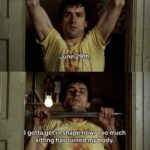One evening, as we were absorbed in these peaceful pursuits, Martinetti informed us that the moment had come. A challenge had been sent to the Canal gang, and they had accepted. The battle was to take place on neutral ground, behind the station. That night, at nine.
It was late afternoon, on a summer day, enervating but charged with excitement. We decked ourselves out in the most terrifying paraphernalia, looking for pieces of wood that could be easily gripped, filling pouches and knapsacks with stones of various sizes. Some of us made whips out of rifle slings, awesome if wielded with decision. During those twilight hours we all felt like heroes, me most of all. It was the excitement before the attack: bitter, painful, splendid. So long, Mama, I’m off to Yokohama; send the word over there. We were sacrificing our youth to the Fatherland, just as they had taught us in school before September 8.
Marinetti’s plan was shrewd. We would cross the railroad embankment farther to the north and come at them from behind, take them by surprise, and thus would be victors from the start. Then no quarter would be granted.
At dusk we crossed the embankment, scrambling up ramps and across gullies, loaded down with stones and clubs. From the crest of the embankment we saw them lying in ambush behind the station latrines. But they saw us, too, because they were watching their backs, suspecting we would arrive from that direction. The only thing for us to do was to move in without giving them time for astonishment at the obviousness of our ploy.
Umberto Eco, Foucault’s Pendulum



Leave a Reply